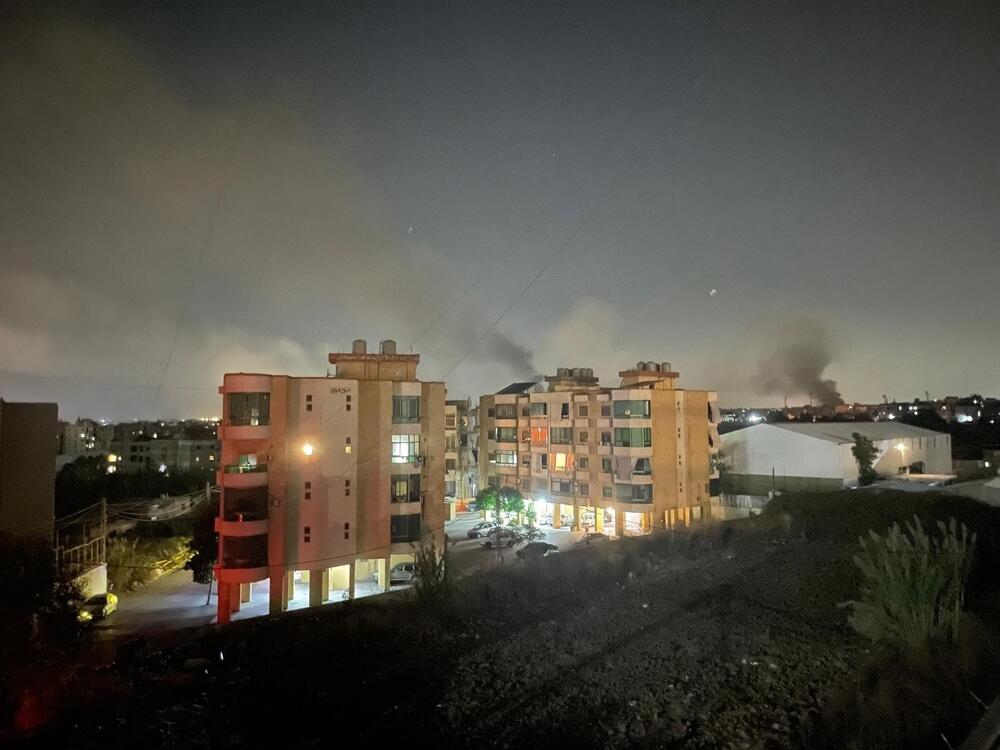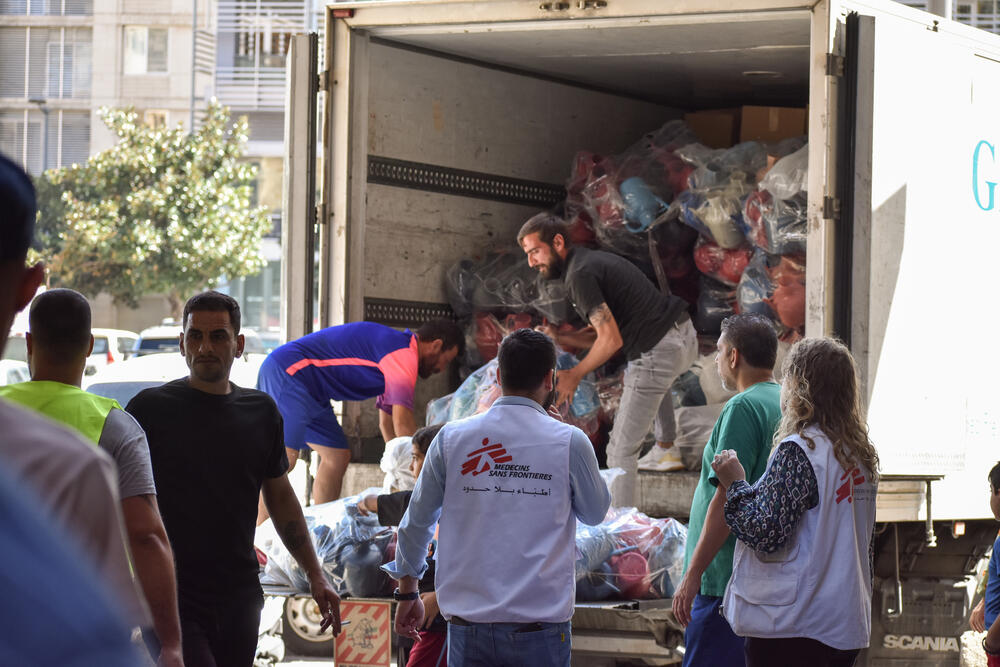Lebanon crisis: What is MSF doing and how can I help?
Following widescale Israeli airstrikes of multiple areas in Lebanon, MSF teams are working around the clock to respond to escalating humanitarian needs.
We are delivering healthcare and essential items to people who have been forced to flee their homes.
Hospitals are overwhelmed. According to the Ministry of Health, more than 1,900 people have been killed and 9,200 injured following the escalation of the conflict and the heavy Israeli bombing across the country over the past weeks. More than one million people have been forced to flee their homes, according to national authorities.
The situation is fast-moving. Please find the latest information on our Lebanon crisis page here.
For breaking news from MSF, follow MSF UK on X (formerly known as Twitter) >
How can I help MSF in Lebanon?
Right now, our teams are treating patients in Lebanon and assessing medical needs.
This is only possible because of donations from people like you.
By giving to our general funds today, you will be helping ensure we can respond to emergencies around the world, including providing medical care to people in Lebanon.
Please donate today to support our emergency teams.
Click here to learn more about how we spend your money
What is happening in Lebanon?
In the early hours of Monday 23 September 2024, the Israeli army launched a large-scale military operation, targeting dozens of towns across Lebanon. Further bombardments in the following days led to people fleeing from these areas as residents sought safety elsewhere.
The intense bombardments have forced many people to flee multiple times, including since clashes that began in October 2023.
Across Lebanon, there are currently 875 shelters, with over 70 percent already full, according to national authorities. Most displaced people urgently need assistance, having fled without basic necessities, while the communities and shelters hosting them are also in dire need of support.
According to the WHO, between 17 and 28 September 2024, 38 health workers have been killed. In addition, six hospitals and 40 primary health centres have been forced to close, with ongoing airstrikes and road damage severely restricting the movement of people and humanitarian access to several affected areas.
How is MSF responding in Lebanon?
MSF is gravely concerned about Israel’s bombing campaign in Lebanon, much of which is taking place in densely populated urban areas. We call for the immediate de-escalation of hostilities to prevent further suffering, injury, and loss of life.
- MSF has deployed mobile medical teams across the country including in Beirut, Mount Lebanon, South (Saida), North (Tripoli), Bekaa and Akkar, offering psychological first aid, general medical consultations, medication and mental health consultations.
- Our teams are also distributing blankets, mattresses, and hygiene kits, as well as supplying water by trucks in schools and shelters where displaced people have gathered. We have also been providing hot meals and drinking water to hundreds of displaced families.
- We are running mental health helplines, offering psychological support to displaced and affected people during this time of distress.
- To support hospitals across the country we have donated 7,000 litres of fuel and provided trauma kits. Since November 2023, 10 tonnes of supplies were prepositioned in hospitals and medical facilities across the country.
- We have trained 117 healthcare workers in trauma care and mass casualty management.
❗MSF team witness airstrikes in Beirut firsthand. Maryam Srour, MSF Field Communications Manager, describes her experience.
Read more on our response in Lebanon: https://t.co/YCJdjjRLbD pic.twitter.com/wSNVmMchZJ— MSF UK (@MSF_uk) September 30, 2024
MSF in Lebanon
We have been working in Lebanon since 1976, when we began our response to the 15-year civil war. Today, we continue to adapt our long-term activities to cover the needs of Lebanese people, as well as refugees and migrants, who often have limited access to medical care.
Civil war in Syria put a huge strain on its neighbours, including Lebanon, which now hosts over 1.5 million refugees – the most per capita in the world.

